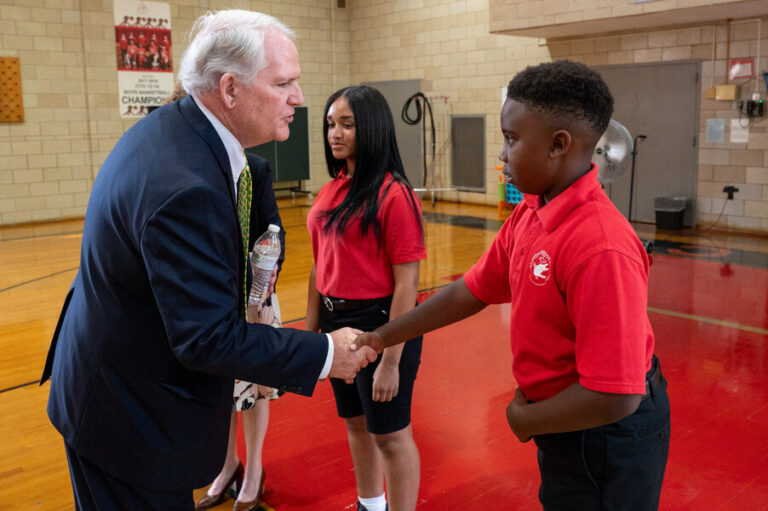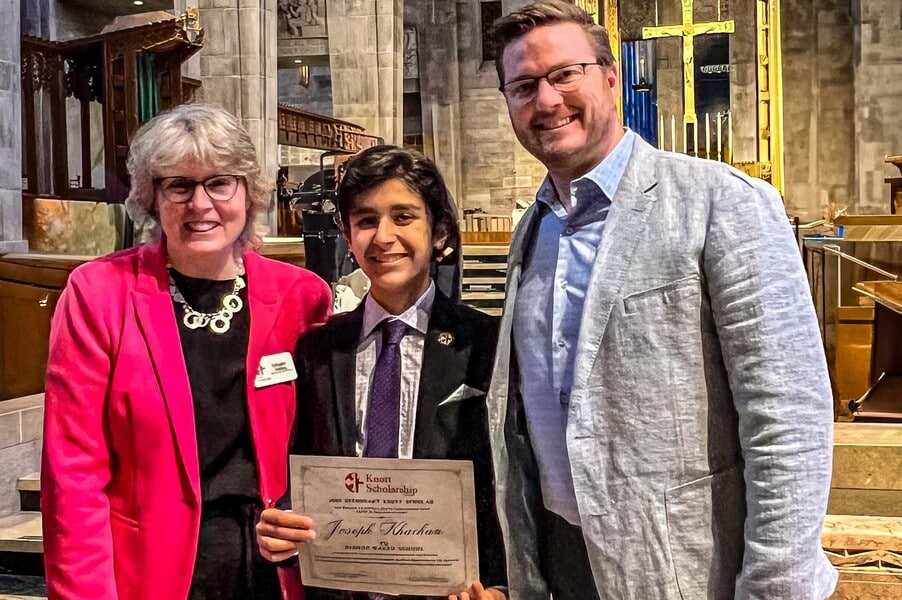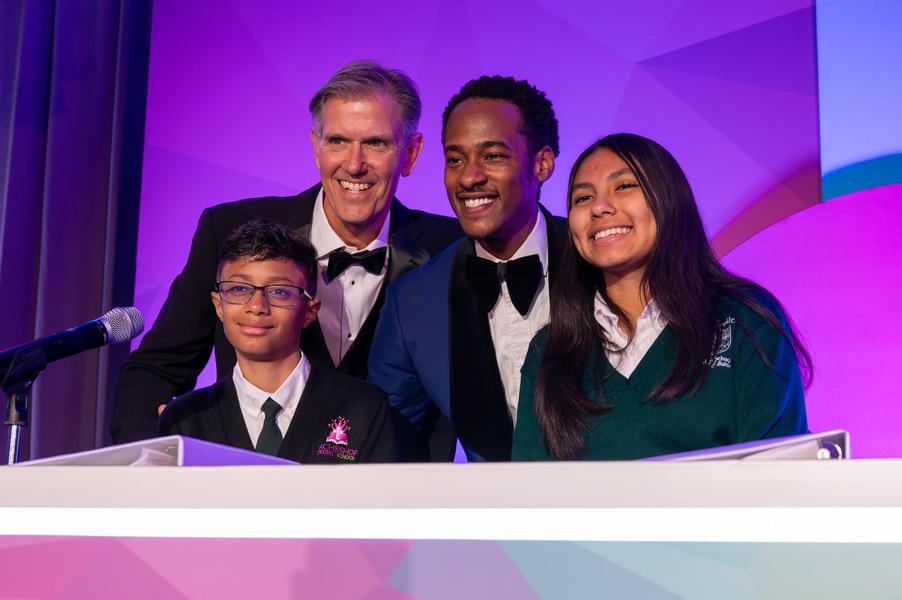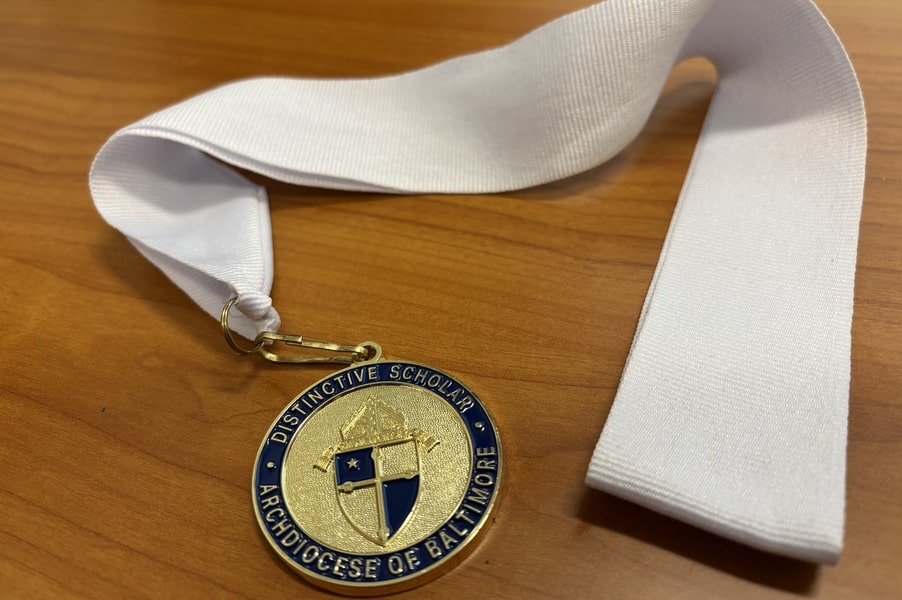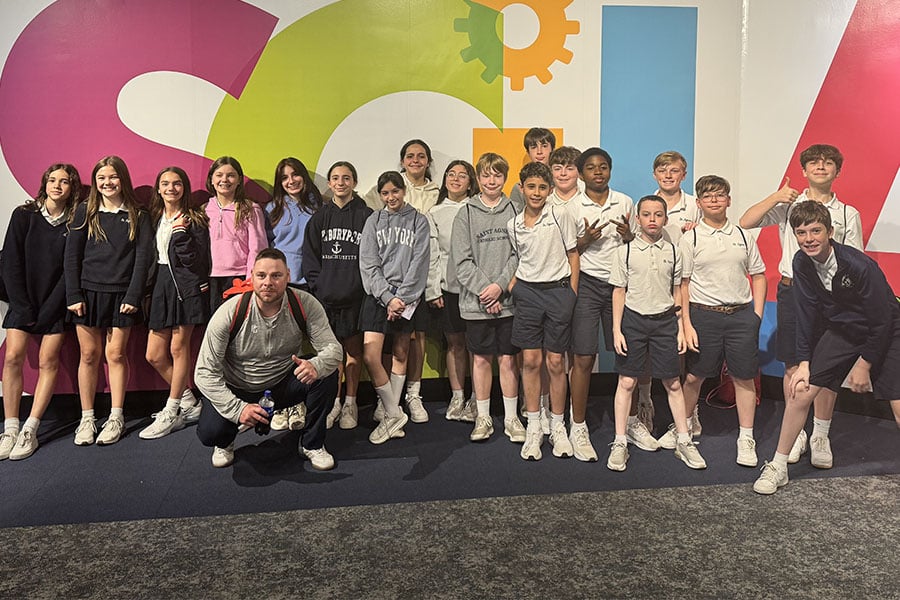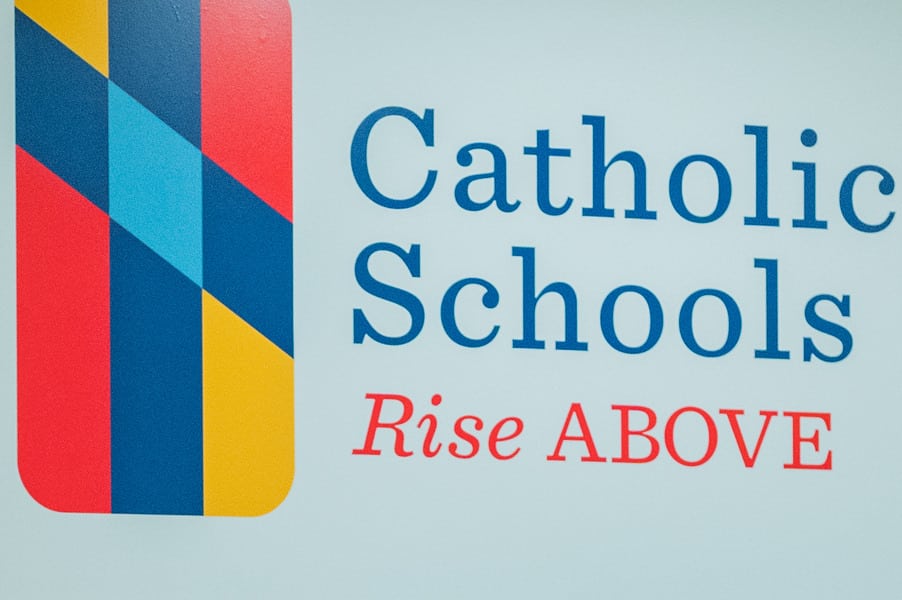Since Gregory Farno joined the Archdiocese of Baltimore’s Department of Catholic Schools as chancellor for education, he has visited a lot of schools. Asked what impressed him as he got to know the schools, one might have expected to hear about state-of-the-art science labs, cute hand-drawn pictures from elementary graders or expansive athletic fields.
Instead, he said, “It’s hard to boil it down to one word. It’s hope and faith. Whether you go to an elementary school, a middle school or high school, in each and every one of our schools, you see great hope and faith that each student and teacher has, and I think that gives the students the energy and the ability
to succeed.”
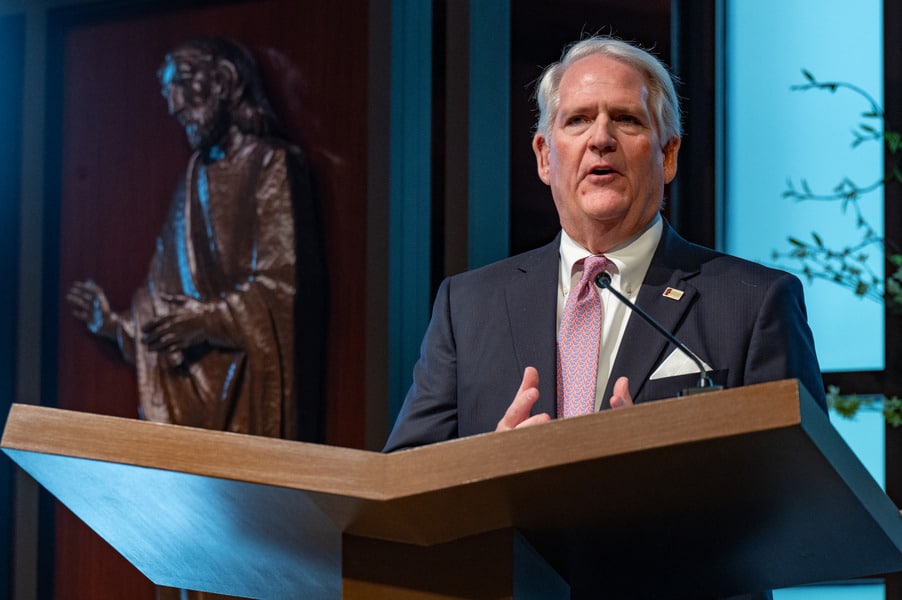
The tools Catholic schools provide to students are critical in their development, and help them grow in confidence.
“College is not the only barometer by any stretch, but it’s telling me that we are preparing our students to enter the world and be very productive members of society.” he said.
Farno has been in the job for about seven months, joining Dr. Donna Hargens, superintendent of schools, who has been with the archdiocese for seven years.
He said the physical plants of schools are important “but that’s not where the magic occurs,” which comes from the teachers and administrators who deliver “the Catholic awe” – something Hargens told him when he first came on board. “It’s not in a textbook, it’s not in a facility, it’s the whole system coming together with our teachers, our administrators and our students, which are all great.”
Farno came to the archdiocesan schools from a career in banking, most recently at Truist, where he was regional president for the Maryland region. As the chancellor of education, Farno oversees the business operations of the Catholic
school system.
As superintendent, Hargens is responsible for academics, curriculum and related elements. She noted that parents can get a sense of how Catholic schools are a good investment. “If they enter a Catholic school, you will see the difference. It is a school family. It is a Christ-centered, respectable environment. It is an environment in which you can learn what you need to learn,” she said.
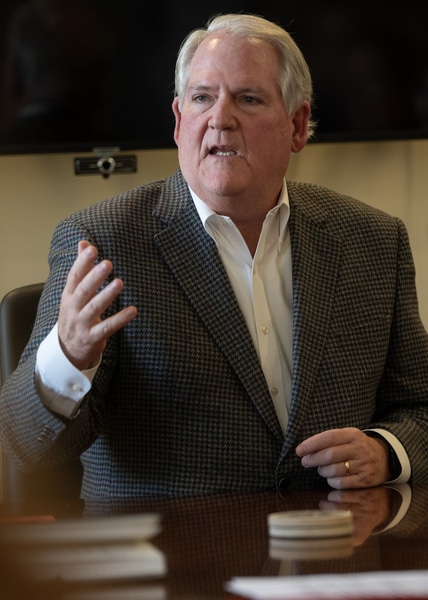
Farno acknowledged that it can be tough to afford a Catholic education, but that it pays off in the long run. Parents know that if their students stay in the Catholic school system, they will be able to go to a great high school. The vast majority who graduate from a Catholic high school – about 98 percent – will go to some secondary education or perhaps military service. “We’re very proud of that.”
Hargens said Catholic schools adapt as the world changes, helping students learn to use technology and other developments, without losing the Christ-centered core.
Farno said it is too early in the school year to pin down numbers for 2024-25, but that some schools are showing significant enrollment increases. The Department of Schools has also launched an initiative to recruit Latino students and families. Kaitlyn Ramos, co-principal of Archbishop Borders School in Highlandtown, the only dual-language school in the archdiocese, started working part-time in July to coordinate the Latino outreach across the archdiocese.
About 5.8 percent of the student population across the archdiocese identifies as Latino, so the growing Hispanic community was underserved. “We know that this portion of the population generally has a very, very strong Catholic faith,” Farno said.
He said he is concerned when families that desire a Catholic education don’t give schools and the archdiocese a chance to work with them to find tuition assistance. While there is always a demand for more funds, the archdiocese has several options to assist families, including Partners in Excellence (PIE). The archdiocese also helps families apply for Broadening Options and Opportunities for Students Today (BOOST) grants from the state. Parishes also often contribute.
“It’s amazing to watch (school leaders) sit down with parents and say, OK, let’s start to work on this and maybe we can pull some money here, and let’s apply for BOOST, and there might be a scholarship program you haven’t thought about to get that number as low as possible. … We do require that all families pay some portion. We think that’s all part of making sure we’re invested together and aligned in the future of this young boy or girl.”
Email Christopher Gunty at editor@CatholicReview.org
Also, click play below to listen to Catholic Review editor Christopher Gunty’s interview with Gregory A. Farno and Superintendent Dr. Donna Hargens on Catholic Review Radio about the start of another Catholic Schools year:
Read More Schools
Copyright © 2024 Catholic Review Media

